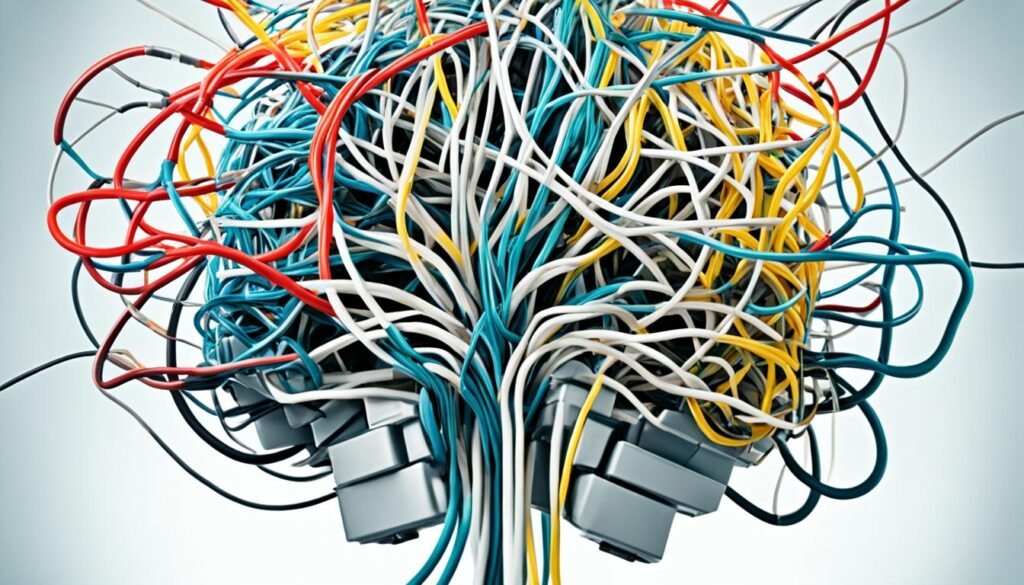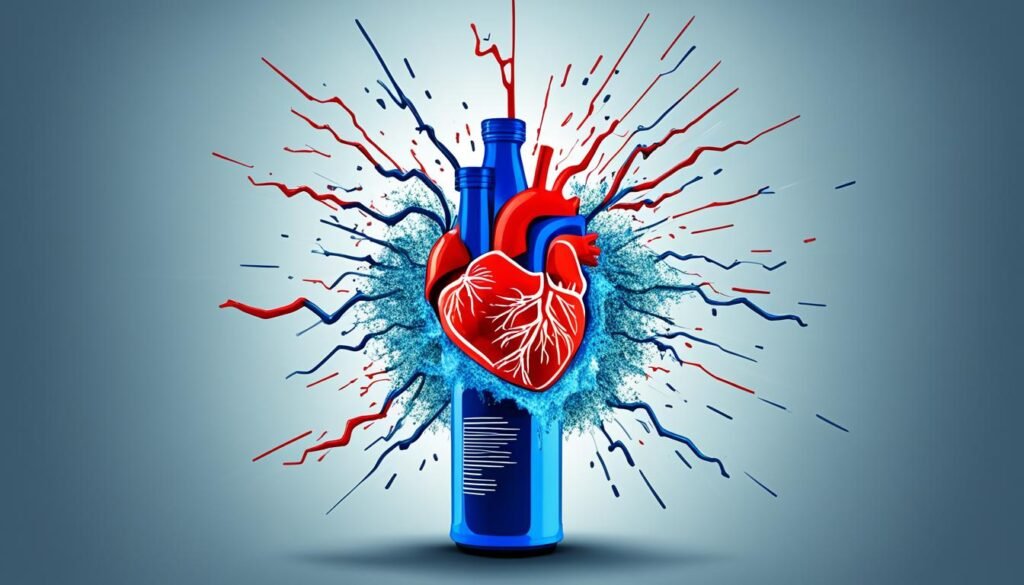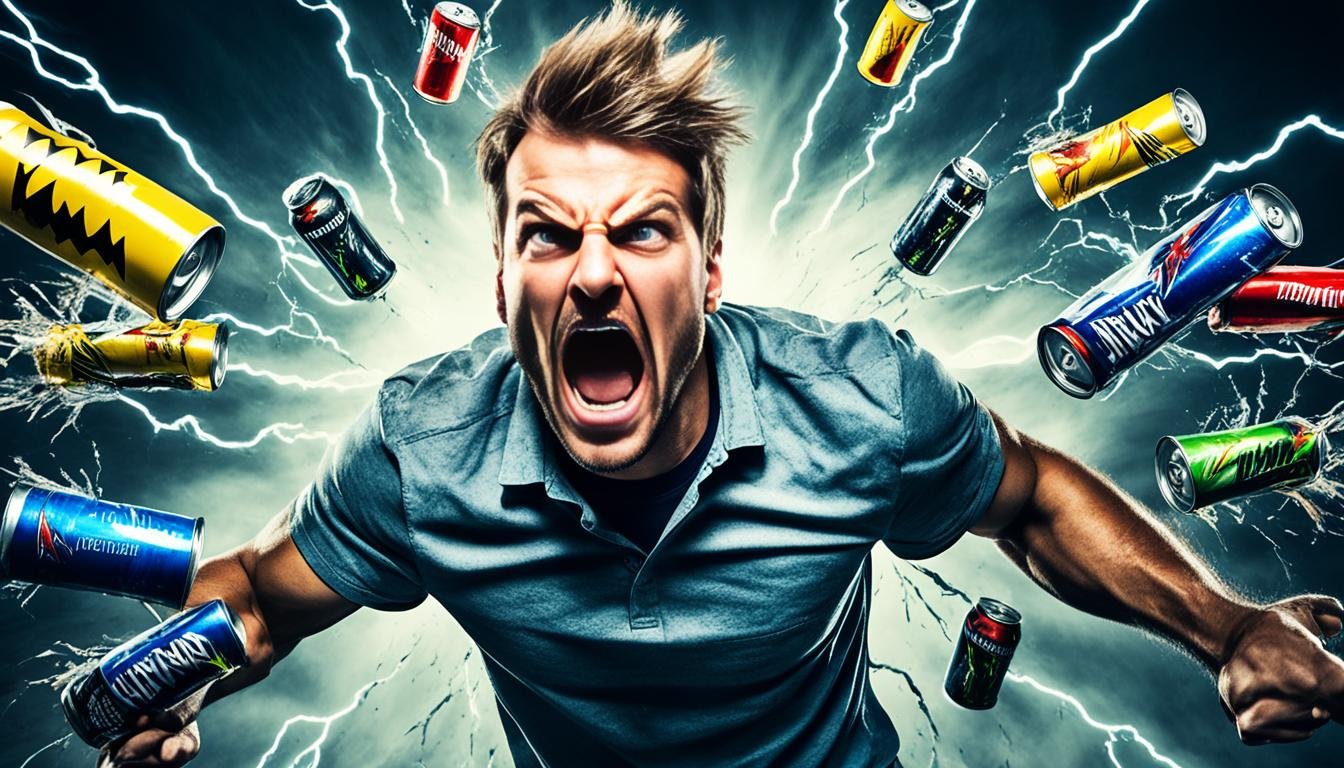Energy drinks Addictive have become increasingly popular as a way to boost energy, enhance alertness, and improve concentration. However, these beverages can also be addictive. They often contain high levels of caffeine and sugar, which can lead to habit-forming behaviors and addiction.
Energy drink addiction is a psychological condition characterized by an ongoing desire to consume excessive amounts of these beverages, despite negative consequences. People who are addicted to energy drinks may experience strong cravings, have difficulty controlling their intake, and may even suffer from withdrawal symptoms when they try to stop.
The addiction to energy drinks can have detrimental effects on both physical and mental health. Regular consumption of these drinks can contribute to tooth decay, weight gain, and an increased risk of chronic diseases. In order to overcome energy drink addiction, it is important to seek treatment and make lifestyle changes.
If you or someone you know is struggling with energy drink addiction, it is important to understand the signs and symptoms and to seek appropriate help and treatment. With the right support and strategies, it is possible to overcome energy drink addiction and regain control of your health and well-being.
Key Takeaways:
- Energy drink addiction is a psychological condition that involves an ongoing desire to consume excessive amounts of these beverages.
- Common symptoms of energy drink addiction include strong cravings, the inability to control intake, and withdrawal symptoms.
- Energy drink addiction can have negative effects on tooth health, weight management, and overall well-being.
- Treatment for energy drink addiction may involve quitting cold turkey, gradually reducing intake, and creating a support system.
- Healthy alternatives to energy drinks, such as herbal teas and decaf coffee, can provide a natural energy boost.
What is Energy Drink Addiction?
Energy drink addiction is a psychological condition characterized by an ongoing desire to consume excessive amounts of these beverages, despite negative consequences.
While there is no official definition for energy drink addiction, it can be defined as drinking energy drinks without being able to control intake. What makes energy drinks addictive is their combination of potentially habit-forming substances like caffeine and sugar.
Signs of addiction include strong cravings, the inability to control intake, and withdrawal symptoms. Addictive symptoms are related to brain and nervous system function and may include mental imagery of drinking energy drinks and the inability to control intake.
To have a better understanding of energy drink addiction, the following table outlines the addictive substances in popular energy drinks:
| Brand | Caffeine Content (mg) | Sugar Content (g) |
|---|---|---|
| Red Bull | 80 | 27 |
| Monster | 160 | 54 |
| Rockstar | 160 | 31 |
| 5-hour Energy | 200 | 0 |
As the table demonstrates, energy drinks contain high levels of both caffeine and sugar, which can contribute to their addictive qualities. The combination of these substances stimulates the brain and nervous system, creating a pleasurable response that can lead to dependence and addiction.
Side Effects of Energy Drink Addiction
Energy drink addiction can have a range of negative side effects on your health. Regular and excessive consumption of energy drinks, especially those high in sugar, can lead to various health issues.
Tooth Decay and Discoloration
One of the side effects of energy drink addiction is tooth decay. Energy drinks that are high in sugar provide a food source for bacteria in your mouth, leading to the formation of plaque and eventually tooth decay. Over time, this can also result in tooth discoloration.
Weight Gain
Consuming energy drinks can contribute to weight gain due to their high-calorie content. These beverages are often packed with sugar and other sweeteners, which can lead to an increase in calorie intake. Regular consumption of energy drinks, combined with a lack of physical activity, can result in weight gain over time.
Health Risks
Frequent consumption of energy drinks can increase the risk of various health issues. These beverages have been linked to heart disease, as they can elevate heart rate and blood pressure. The high sugar content in energy drinks also raises the risk of developing type 2 diabetes. In addition, kidney disorders have been associated with the excessive consumption of energy drinks.
Furthermore, sugar-free energy drinks that use artificial sweeteners may also pose health risks. Some studies suggest that these sweeteners can increase the risk of developing type 2 diabetes and metabolic syndrome.
It’s important to be aware of these side effects and consider the impact that energy drink addiction can have on your overall health and well-being.

How Does Energy Drink Addiction Happen?
Energy drink addiction can develop gradually or quickly, depending on individual factors. The combination of caffeine and sugar in energy drinks can cause the brain to release higher amounts of dopamine, creating a pleasurable and addictive response.
The more often energy drinks are consumed, the less pleasure is experienced from the dopamine response, leading to increased consumption and dependence. Psychological factors also contribute to addiction, such as the belief that energy drinks are necessary to perform daily tasks. Additionally, biological factors, including brain chemistry and genetics, play a role in individual susceptibility to addiction.

Strategies to Quit Energy Drinks
Quitting energy drinks can be challenging, but with the right strategies, it is possible to overcome the addiction. Here are some effective techniques to help you quit energy drinks:
- Quitting Cold Turkey: One approach is to completely stop consuming energy drinks overnight. This method eliminates the addiction quickly but may result in withdrawal symptoms such as headaches, fatigue, irritability, and difficulty concentrating. It requires strong willpower and determination.
- Tapering Off: Another approach is to gradually reduce your intake of energy drinks over time. This method allows your body to adjust gradually and minimizes withdrawal symptoms. Start by replacing one energy drink with a healthier alternative each day until you can completely eliminate them from your routine.
- Managing Withdrawal Symptoms: It’s important to be prepared for withdrawal symptoms when quitting energy drinks. Some common symptoms include headaches, fatigue, irritability, and difficulty concentrating. To manage these symptoms, make sure you get plenty of rest, stay hydrated, and engage in activities that help you relax, such as practicing mindfulness or deep breathing exercises.
- Exploring Alternatives: Instead of relying on energy drinks, consider healthier alternatives to boost your energy levels. Herbal or fruit teas, decaf coffee, and natural fruit juices can provide a refreshing and energizing alternative without the negative side effects of energy drinks.
- Shifting Thought Processes: Changing the way you think about energy drinks can also help in quitting. Remind yourself of the negative health effects and the benefits of living an energy-drink-free lifestyle. Focus on the positive changes you’ll experience, such as improved sleep, better hydration, and a healthier overall well-being.
- Creating a Support System: Having a support system can make a significant difference in your success at quitting energy drinks. Share your goals with friends and family who can provide encouragement and hold you accountable. Consider joining support groups or seeking professional help if needed.
- Managing Stress Levels: Stress can often be a trigger for consuming energy drinks. Find healthier ways to manage stress, such as engaging in physical activity, practicing relaxation techniques, or pursuing hobbies that bring you joy.
Maintaining a positive mindset, staying committed to your goals, and seeking support when needed are key factors in successfully quitting energy drinks. Remember, quitting is a journey, and it may take time to fully overcome the addiction. Be patient and kind to yourself throughout the process.
| Strategies | Benefits |
|---|---|
| Quitting Cold Turkey | – Fast elimination of the addiction – Requires strong willpower |
| Tapering Off | – Gradual adjustment for the body – Minimizes withdrawal symptoms |
| Managing Withdrawal Symptoms | – Headache, fatigue, irritability – Difficulty concentrating |
| Exploring Alternatives | – Herbal or fruit teas – Decaf coffee and natural fruit juices |
| Shifting Thought Processes | – Focus on health effects – Embrace positive changes |
| Creating a Support System | – Friends and family support – Joining support groups |
| Managing Stress Levels | – Find healthier stress management techniques |

Risk Factors for Energy Drink Addiction
There are several factors that contribute to the development of energy drink addiction. Understanding these risk factors can help individuals and healthcare professionals identify those who may be more susceptible to addiction and provide appropriate support. The following are some key risk factors for energy drink addiction:
Youth and Vulnerability
- Young age: Adolescents and young adults are more likely to be vulnerable to energy drink addiction. This may be due to factors such as curiosity, peer influence, and a desire for increased energy and alertness.
Past Substance Use Disorders
- History of substance use disorders: Individuals with a previous history of substance use disorders, such as alcohol or drug addiction, may be at a higher risk of developing an addiction to energy drinks. This could be attributed to the addictive tendencies and behaviors that may predispose them to other types of addictive substances.
Social Environment
- Group norms and influences: Spending time in social groups where energy drink consumption is prevalent can contribute to overconsumption and addiction. Peer pressure and the desire to fit in or conform to group habits can significantly impact an individual’s energy drink consumption patterns.
Psychological Factors
- Stress and mental health problems: Psychological factors, such as stress, anxiety, depression, and other mental health conditions, can increase the likelihood of developing an addiction to energy drinks. Individuals may turn to these beverages as a coping mechanism or to self-medicate.
Understanding these risk factors can help individuals and healthcare professionals be more proactive in preventing or addressing energy drink addiction. By addressing these factors and providing appropriate education and support, it is possible to reduce the prevalence of energy drink addiction and its associated negative consequences.
Treatment for Energy Drink Addiction
Treatment for energy drink addiction often involves a comprehensive approach that includes detoxification programs, rehab, and therapy. These treatment options aim to help individuals overcome addiction, manage withdrawal symptoms, and develop healthier coping mechanisms.
Detox and Rehab Programs
Detox programs provide a supportive environment for individuals seeking to abstain from energy drinks. They offer medical supervision to manage withdrawal symptoms and ensure the safety and comfort of the person undergoing detoxification. Detox can be done on an inpatient or outpatient basis, depending on the severity of addiction and individual needs.
Also Read:- Fueling Fitness: How Energy Drinks For workout Can Boost Your Exercise Intensity
Rehab programs, both inpatient and outpatient, play a crucial role in the treatment of energy drink addiction. These programs provide a structured and therapeutic setting where individuals can address the underlying issues contributing to their addiction and learn new strategies for recovery. In addition to therapy, rehab programs also offer support groups, educational sessions, and holistic approaches to promote overall well-being.
Therapy for Energy Drink Addiction
Therapy is an essential component of energy drink addiction treatment. It helps individuals identify triggers, understand the root causes of their addiction, and develop coping mechanisms to resist cravings and prevent relapse. One common therapeutic approach used for energy drink addiction is cognitive-behavioral therapy (CBT).
“CBT helps individuals identify triggers, develop healthy coping strategies, and challenge negative thoughts and behaviors associated with energy drink addiction. It focuses on changing thought patterns and developing alternative behaviors to promote a healthier and more balanced lifestyle.”
Other therapeutic approaches, such as motivational interviewing, family therapy, and group therapy, may also be utilized to address specific needs and provide additional support.
It is important to seek professional help when dealing with energy drink addiction. Treatment programs and therapy sessions tailored to the individual’s needs can greatly increase the chances of successful recovery and long-term sobriety.

Image: Detox and rehab programs provide support and guidance for individuals struggling with energy drink addiction.
Effects of Energy Drink Addiction on Health
Energy drink addiction can have various negative effects on health. Excessive consumption of energy drinks can increase the risk of heart problems, including heart disease and irregular heart rhythms. The high sugar content of energy drinks can contribute to weight gain and increase the risk of developing type 2 diabetes. The caffeine in energy drinks can disrupt sleep patterns and lead to sleep problems. Other potential effects include digestive issues, anxiety, and impaired memory.
Health Risks of Energy Drink Addiction:
Energy drink addiction can lead to serious health complications, including:
- Increased risk of heart disease and irregular heart rhythms
- Weight gain and higher risk of developing type 2 diabetes
- Disrupted sleep patterns and sleep problems
- Digestive issues
- Anxiety and heightened stress levels
- Impaired memory and cognitive function
Excessive consumption of energy drinks can put a strain on the cardiovascular system due to the combination of caffeine and other stimulants. This can lead to an increased risk of heart problems, such as heart disease and irregular heartbeats. It is important to be aware of the potential health risks associated with energy drink addiction and take steps to reduce consumption and seek professional help if needed.
Furthermore, the high sugar content of energy drinks can contribute to weight gain and obesity. Regularly consuming these beverages can lead to an excessive intake of calories and contribute to the development of type 2 diabetes. It is essential to be mindful of the impact energy drinks can have on weight management and overall metabolic health.
The caffeine in energy drinks can disrupt sleep patterns and lead to sleep problems, such as insomnia and restlessness. This can have a negative impact on overall sleep quality and duration, leading to fatigue and daytime drowsiness.
In addition to these physical effects, energy drink addiction can also have psychological consequences. Digestive issues, such as acid reflux and stomach ulcers, can arise from the stimulant properties of energy drinks. Increased levels of anxiety and stress have also been reported in individuals who consume energy drinks regularly. Moreover, excessive consumption of these beverages can impair memory and cognitive function, affecting overall mental performance.
“Excessive consumption of energy drinks can have detrimental effects on the body, including heart problems, weight gain, and sleep disturbances.”

| Health Effects of Energy Drink Addiction |
|---|
| Increased risk of heart disease and irregular heart rhythms |
| Weight gain and higher risk of developing type 2 diabetes |
| Disrupted sleep patterns and sleep problems |
| Digestive issues |
| Anxiety and heightened stress levels |
| Impaired memory and cognitive function |
It is crucial to be mindful of the potential health risks associated with energy drink addiction. Managing consumption, seeking professional help, and adopting healthier alternatives can all contribute to better overall health and well-being.
Signs of Energy Drink Addiction
Energy drink addiction can have observable signs that indicate the presence of addiction. These signs can manifest as both behavioral changes and physical symptoms. It is important to be aware of these signs to identify the need for professional support and intervention.
Behavioral Changes in Energy Drink Addiction
- Secretive behavior: Individuals may try to conceal their excessive energy drink consumption, hiding bottles or cans.
- Decreased performance at work or school: Addiction to energy drinks can lead to decreased productivity, poor concentration, and reduced academic or professional achievement.
- Participation in risky behaviors: Addicted individuals might engage in risky activities or behaviors to obtain energy drinks or satisfy their cravings.
- Changes in personal hygiene: Neglecting personal grooming and hygiene can be indicative of energy drink addiction.
- Changes in appearance due to declining health: Long-term addiction can lead to physical health deterioration, noticeable changes in skin tone, weight loss, or weight gain.
Physical Symptoms of Energy Drink Addiction
- Speech changes: Excessive energy drink consumption can affect speech patterns, causing rapid speech or difficulty articulating properly.
- Impaired memory: Addiction to energy drinks can impair memory function and lead to forgetfulness or difficulty retaining information.
- Poor decision-making: Individuals addicted to energy drinks may struggle with making sound judgments or impulsive decision-making.
- Long-term health problems related to energy drink consumption: Chronic consumption can result in various health issues, including heart problems, high blood pressure, liver damage, and kidney problems.
If you or someone you know exhibits these signs of energy drink addiction, it is essential to seek professional support and guidance for proper assessment and treatment. Identifying addiction early can greatly improve the chances of successful recovery and long-term health.
“Recognizing the signs of energy drink addiction is the first step towards seeking help and reclaiming a healthier, more balanced life.”
Conclusion
Energy drink addiction can have a serious impact on your health and well-being. However, it is possible to overcome it with determination and proper support. Quitting energy drinks may be challenging, but there are effective strategies and healthier alternatives available to help you on your journey towards recovery.
Professional help plays a crucial role in overcoming energy drink addiction. Seeking therapy and detox programs can provide the support and guidance needed to navigate the recovery process. Therapists can help you identify triggers, develop coping mechanisms, and replace negative behaviors with positive alternatives. Detox programs can assist in managing withdrawal symptoms and provide a safe space for you to heal.
Building a strong support system is essential for successfully overcoming energy drink addiction. Surround yourself with understanding and encouraging individuals who can offer emotional support as you make positive changes in your life. Together, you can celebrate milestones and overcome challenges.
By quitting energy drinks and adopting healthier habits, you can improve your overall health and well-being. Remember, overcoming addiction is a journey, and it may take time, but with determination, professional help, and the support of your loved ones, you can regain control of your life and enjoy a healthier future.
FAQs
Q: Are energy drinks addictive?
A: Yes, energy drinks can lead to addiction and dependence due to their high caffeine content and the need to boost energy levels.
Q: What are the alternatives to energy drinks?
A: If you’re trying to quit energy drinks, consider alternatives such as natural energy-boosting foods, herbal teas, or caffeine-free drinks to fulfill your energy needs.
Q: What are the withdrawal symptoms of energy drink addiction?
A: Common withdrawal symptoms include fatigue, irritability, headaches, and difficulties concentrating. It’s important to seek professional help when overcoming energy drink addiction.
Q: How can I stop drinking energy drinks?
A: To stop drinking energy drinks, gradually reduce your energy drink intake, stay hydrated, get enough sleep, and find healthy ways to boost your energy levels without relying on energy drinks.
Q: What do I need to know about energy drink addiction?
A: Energy drink addiction can happen to anyone, and it’s essential to understand the risks associated with excessive use of energy drinks and the potential for addiction and dependence.
Q: Can I function well without energy drinks?
A: Yes, it is possible to function well without energy drinks by adopting a balanced lifestyle, getting adequate rest, staying physically active, and consuming a nutritious diet.
Q: Do sugar-free energy drink options help in overcoming energy drink addiction?
A: Sugar-free energy drink options may seem like a healthier choice, but they can still contain high levels of caffeine, which can affect your overall well-being. It’s best to seek alternatives without relying on energy drinks.





